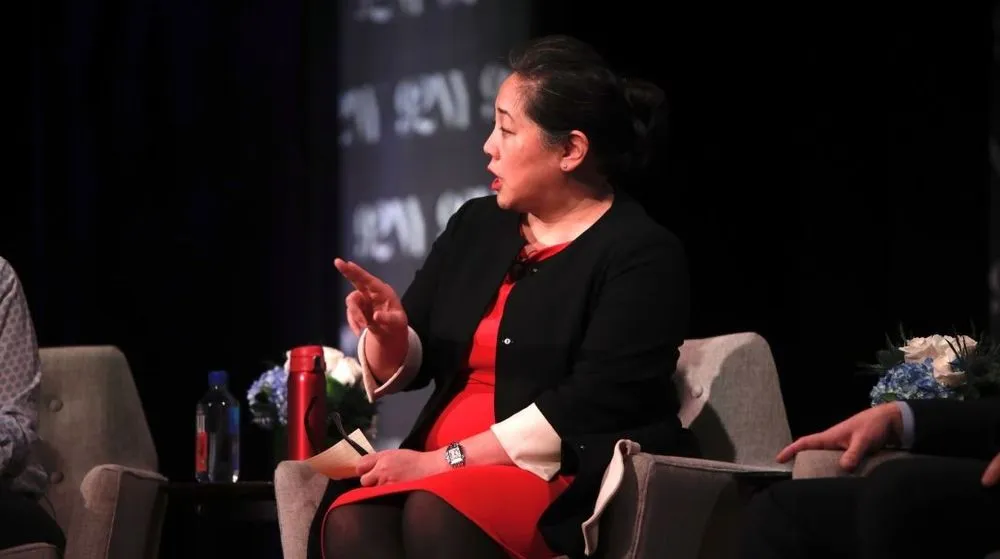Russia's cyber personnel has 'underperformed' in Ukraine: U.S. Defense official
A senior Pentagon official on Wednesday said that Russia’s cyber personnel “underperformed” during the initial invasion of Ukraine, prompting it to ultimately rely less on digital attacks during the now months-long conflict than was expected.
Speaking at the Aspen Cyber Summit, Mieke Eoyang, the deputy assistant secretary of defense for cyber policy, said Moscow “was not prepared for the conflict to go on as long as it did" and noted the Kremlin had sacrificed “intensity and sophistication” in order to rebuild its arsenal and avoid potential conflict that would draw in NATO.
“We have to understand how those factors play against each other," Eoyang told the audience.
Her remarks come as the war approaches its ninth month. And while Russian groups have been blamed for ransomware attacks and other malign activities against Kyiv, larger strikes on the country’s critical infrastructure, like its electric grid, have not occurred.
That absence, Eoyang said, should prompt the U.S. and other nations to reconsider how offensive cyber capabilities could be used in warfare.
“We have to think very differently about how we think about armed conflict and cyber in light of this conflict,” she said.
In Ukraine, "the context of the armed conflict dwarfs the cyber impacts,” she said. "Things that Russians tried to disrupt via cyber did not have the strategic impact that they wanted and they sought to destroy those things physically."
Eoyang added that the Defense Department has experience maintaining secure government communications, but the war in Ukraine has introduced new challenges. In Ukraine, communications among the populace need to be secure and consistent, along with essential government functions and data.
“This is the first conflict that we're seeing where the ability of people to tell their stories and their experiences of armed conflict is very different, and the information space here is a very different environment than what we've seen before."
For months, the federal government has urged the private sector, and its own agencies, to keep their “shields up” against possible Russian digital attacks that stem from Moscow’s assault on its former Soviet satellite state — a posture Eoyang said should be maintained.
“We are seeing what happens when Russia is forced to make choices about how it allocates the cyber capacity that it has,” she said. "I don't think any of us know what the escalation calculus is going to be, at what point we might be having to really think about attacks on U.S. infrastructure … But it is really important that we are taking all the steps that we can to prepare."
Recorded Future, the parent company of The Record, is a sponsor of the Aspen Cyber Summit.
Martin Matishak
is the senior cybersecurity reporter for The Record. Prior to joining Recorded Future News in 2021, he spent more than five years at Politico, where he covered digital and national security developments across Capitol Hill, the Pentagon and the U.S. intelligence community. He previously was a reporter at The Hill, National Journal Group and Inside Washington Publishers.



